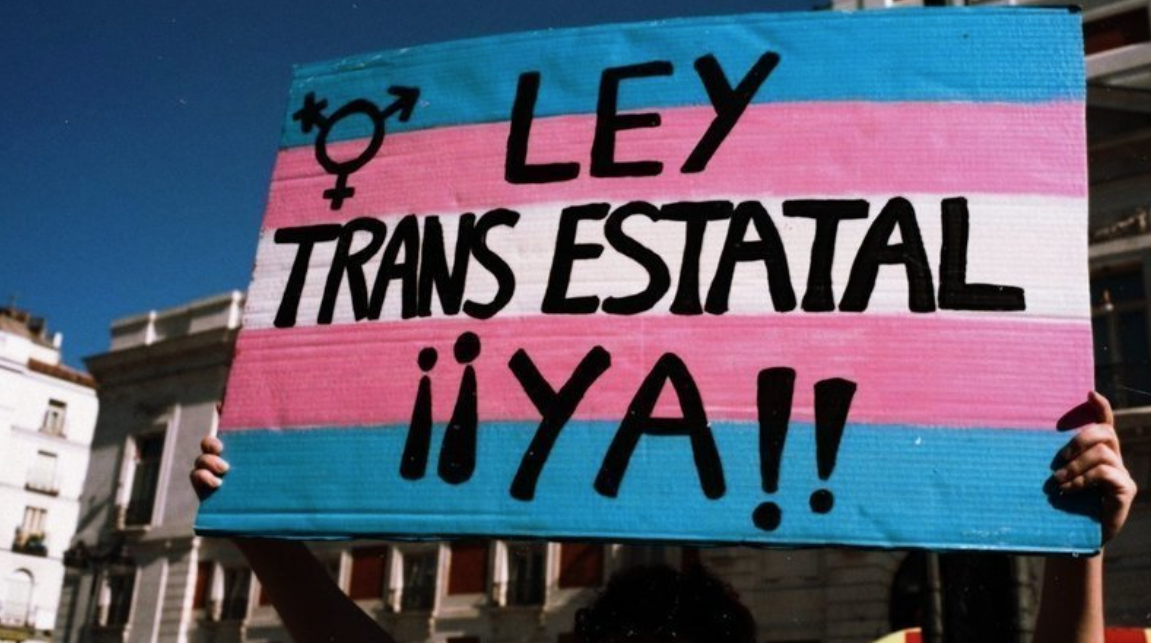Co-author Luisa Rebeca Garza López
Nowadays, democracies cannot be explained from narrow frameworks of understanding, even if they pretend to be “universalist”. This occurs in Latin American societies where hegemonic ideologies such as cisgender, heterosexual, ableist, misogynist, and racist, among others, are connected in a complex way, leaving out populations historically marginalized from the demos, such as trans* people. This last denomination with an asterisk means transsexual, transvestite, transgender, non-binary people from native and emerging peoples.
Therefore, the demand for truly inclusive democracies is an urgency that is sustained in the human rights narrative. Disaffection with this issue is a serious undermining of these rights, but above all the dignity of these people.
In this context, several independent trans organizations and activists, as well as allied organizations and individuals, recently presented the Latin American and Caribbean Observatory of political and electoral rights of trans* people. This Observatory arises from the recognition of the existence of a hostile context for trans people to exercise their political and electoral rights and emphasizes the need for States to guarantee the right of trans people to exercise their vote in dignified and safe spaces.
In the region, some of the main obstacles that have been identified during each of the stages of the electoral processes, and especially on Election Day, is that trans* people are not only discriminated against, segregated, and violated through ridicule, uncomfortable looks, denigrating comments or expressions, invasive questions or the application of procedures that generate violence because of their non-normative gender identity and expression, but they are also denied the right to vote.
In addition to providing solutions to this problem, the Latin American and Caribbean Observatory of political and electoral rights of trans* people also emerges with the aim of repairing a historical debt that has made trans populations invisible from the recovery of historical memory. In particular, gender-based political violence and hate speech are motivated by prejudices and stigmas around gender identity. The recognition of these realities adds to situations of political-administrative and legal lethargy to pass laws or reform civil codes around gender identity that recognize and guarantee this human right.
The Observatory was convened and coordinated by the Electoral Observation Mission, MOE; the Foundation Transgender Action & Support Group, GAAT; and Caribe Afirmativo (all from Colombia) at the beginning of 2021, and trans members or alliances from different countries in the region such as Panama, Nicaragua, Venezuela, Peru, Ecuador, Honduras, Dominican Republic, Bolivia, Chile, and the University of Guanajuato in Mexico participated.
The Observatory is the result of 15 months of collective work during the Covid-2019 pandemic and is presented as a plural and collaborative structure led by trans* organizations and activists, with the support of independent activists and allies, which collects, processes, and disseminates updated information to contribute to the monitoring and promotion of political and electoral rights of trans* people in Latin America and the Caribbean.
The Observatory’s aim is to guarantee the political and electoral rights of trans* people in the region through three specific objectives. First, to monitor the mechanisms that guarantee and hinder the political participation of these people, especially gender-based political violence and hate speech. Second, to generate knowledge through the collection of evidence on the state of political and electoral rights of transgender people. And finally, to promote the adoption and implementation of protocols or inclusion measures to guarantee their political and electoral rights.
One of the first actions of the Observatory was the presentation of the “Measures to guarantee the right to vote of trans people in Latin American and Caribbean countries” which contains different recommendations addressed to the electoral authorities, to the competent public representatives who work on election day, to political party leaders, to those who do electoral observation and to the institutions of the Security Forces.
The background of this process is in the approval of the “Protocol to promote measures to guarantee the right to vote for trans persons (transgender, transsexual and transvestites) under equal conditions and free of discrimination” in Colombia in 2020, which in turn, is based on the “Protocol to guarantee measures tending to guarantee trans people the exercise of the vote under equal conditions and without discrimination in all types of elections and mechanisms of citizen participation” of Mexico, approved in 2017.
It is important to note that to date only four countries in the region have a protocol to ensure the vote of trans people: Mexico, Colombia, Chile, and Peru. Of these four countries, only Mexico does not have a gender identity law at the national level. However, the rectification of legal documents in accordance with the sex of the person is not a simple procedure in the countries where this law exists, since the process of changing one’s name is costly and many times the personnel of the institutions is unaware of the right to rectify gender identity.
The launching of the Observatory is good news for the region. The consolidation processes of Latin American democracies require the recognition of the full exercise of trans* citizenship. In this way, the debt with these populations that have historically been excluded from collective dialogue and public decisions begins to be repaired.
Luisa Rebeca Garza López is an electoral official specializing in promoting civic education and democratic culture with a gender and intersectionality perspective. She is responsible for the Office of Civic Education and Citizen Participation of the State Electoral Institute of the State of Oaxaca (IEEPCO), Mexico.
Translated from Spanish by Janaína Ruviaro da Silva













